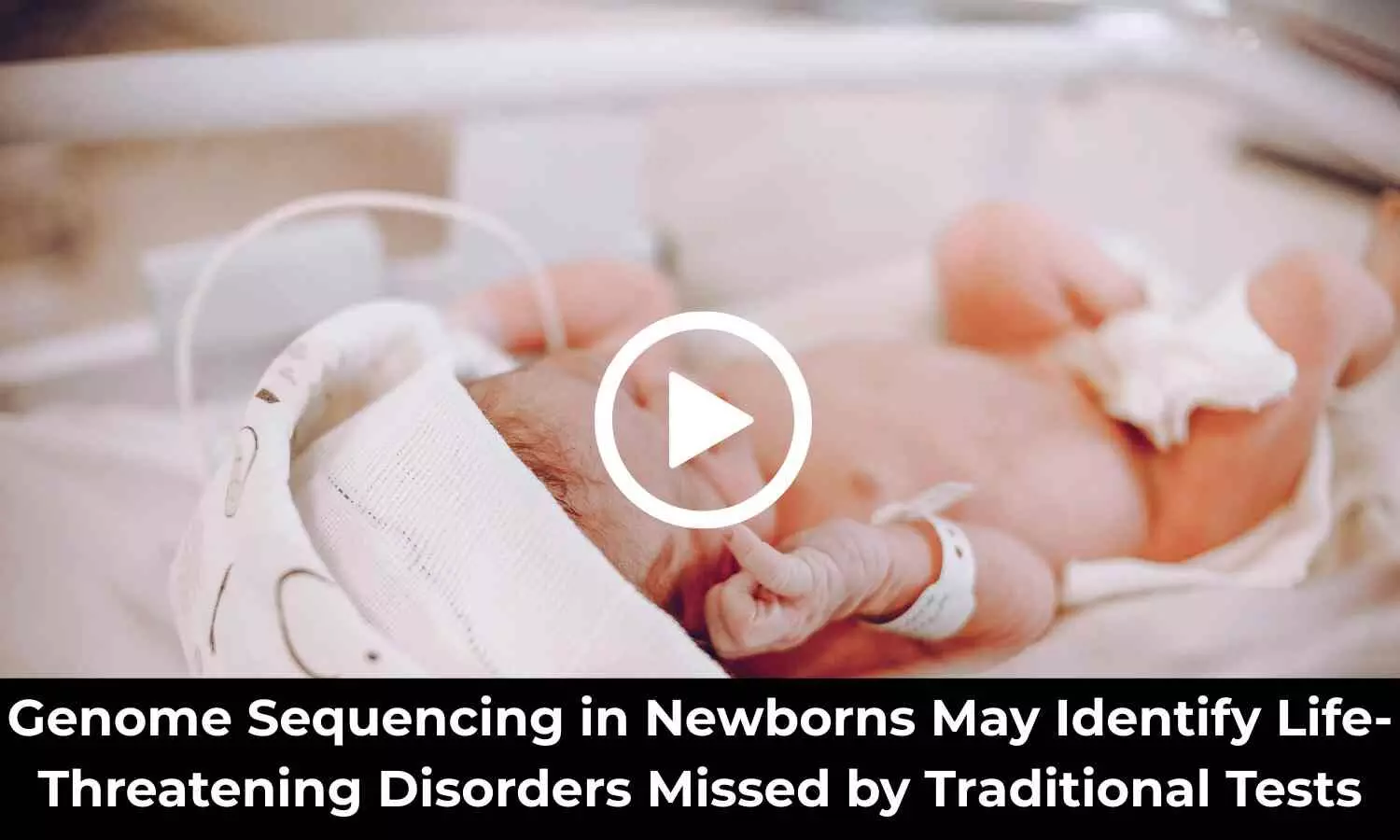Genome Sequencing in Newborns May Identify Life-Threatening Disorders Missed by Traditional Tests: Study Shows
- byDoctor News Daily Team
- 11 October, 2025
- 0 Comments
- 0 Mins

A recent study published inNature Medicinehas revealed that adding genomic sequencing to Australia’s standardnewbornblood screening could dramatically improve early diagnosis and treatment for hundreds of severe childhood conditions. The BabyScreen+ study demonstrated that using genomic sequencing, which maps a baby’s entire genetic code, could expand screening to detect hundreds of serious, treatable disorders. The test, using the sameblood samplealready collected for standard screening, returned results within 14 days. In the pilot study, 1,000 newborns in Victoria were screened for changes in 605 genes linked to early-onset, severe, and treatable conditions. The genomic testing, conducted separately from the standard screening, required additional parental consent. Researchers found that 16 babies had a high likelihood of a genetic condition, yet only one was identified through the traditional heel-prick test. One powerful case was that of baby Giselle, diagnosed at seven weeks with the life-threatening immune disorderhemophagocytic lymphohistiocytosis(HLH). “We went from thinking we had a healthy baby to the real possibility she might die,” said her mother, Scarlett. A successful bone marrow transplant, with Scarlett as the donor, saved Giselle’s life. Lead researcher Professor Zornitza Stark said, “Newborn screening for rare conditions is one of the most effective public health interventions,” emphasizing how genomic screening vastly expands the range of detectable diseases. Associate Professor Sebastian Lunke added that while the technology offers lifelong benefits, it raises concerns around privacy, cost, data storage, and consent. With 99.5% of parents in the study supporting universal access to the testing, the study's findings pave the way for broader adoption. Reference:Lunke, S., Downie, L., Caruana, J. et al. Feasibility, acceptability and clinical outcomes of the BabyScreen+ genomic newborn screening study. Nat Med (2025). https://doi.org/10.1038/s41591-025-03986-z
Disclaimer: This website is designed for healthcare professionals and serves solely for informational purposes.
The content provided should not be interpreted as medical advice, diagnosis, treatment recommendations, prescriptions, or endorsements of specific medical practices. It is not a replacement for professional medical consultation or the expertise of a licensed healthcare provider.
Given the ever-evolving nature of medical science, we strive to keep our information accurate and up to date. However, we do not guarantee the completeness or accuracy of the content.
If you come across any inconsistencies, please reach out to us at
admin@doctornewsdaily.com.
We do not support or endorse medical opinions, treatments, or recommendations that contradict the advice of qualified healthcare professionals.
By using this website, you agree to our
Terms of Use,
Privacy Policy, and
Advertisement Policy.
For further details, please review our
Full Disclaimer.
Recent News
Lower ketone levels and improved exercise capacity...
- 01 November, 2025
Citrus Flavonoids effective nutritional adjunct to...
- 01 November, 2025
Daily kimchi intake linked to reduced BMI and bell...
- 01 November, 2025
Aggressive Risk Factor Management Reduces AF Recur...
- 01 November, 2025
Daily Newsletter
Get all the top stories from Blogs to keep track.


0 Comments
Post a comment
No comments yet. Be the first to comment!